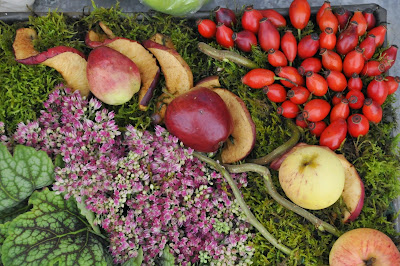Outside the Khan's palace in Baku is a sign commemorating the so called
March Days in 1918, when thousands of Azeris where killed by Armenians in the chaotic situation in the wake of WW1 and the Russian Revolution. The word "
genocide" is carefully included in the text to describe the horrible event, although perhaps not exactly living up to the definition. A hundred years later, Armenia and Azerbaijan is still at war, with the
Nagorno-Karabakh situation unresolved and a million people displaced from their homes.
To the untrained eye, the holes in the wall surely looks like they were made by bullets. However, nowhere is information found about the
September Days from the same year, when the
Ottoman Islamic Army of the Caucasus advanced and together with the local Azeris killed about the same number of Armenians in Baku.
This year Armenia commemorates
The Armenian Genocide Centennial. The forget-me-not has been chosen as a symbol, and can be found everywhere in the country: on shop doors, on taxis, in hotels, out in the countryside and in Jerevan.
"The color of black symbolizes horror and the memories of the Genocide. The yellow color symbolizes the sunlight, which gives hope to live and create. The inner radial light purple symbolizes involvement in the recognition and condemnation of the Armenian Genocide. And the predominant purple lies in the basis of Armenians’ self-consciousness, in vestments worn by the servants of Armenian Apostolic Church."
During the summer of 2015, the Swedish newspaper Svenska Dagbladet held a competition to where you could vote for
the most beautiful word in the Swedish language. Words such as "snöflinga" (snowflake), "glänta" (clearing in the wood), "juninatt" (night in june), "gryning" (dawn), and "västanvind" (wind from the West) were suggested, but it was "förgätmigej" (forget-me-not) that won.
The author Björn Ranelid, who were among the people who had suggested this word,
motivated his choice this way:
"What joy to be a wish, a desire and a declaration in one single word. However, the imperative does not have an exclamation mark in its tow, but hides a neglected verb in its chalice." (my own, very crude translation)















